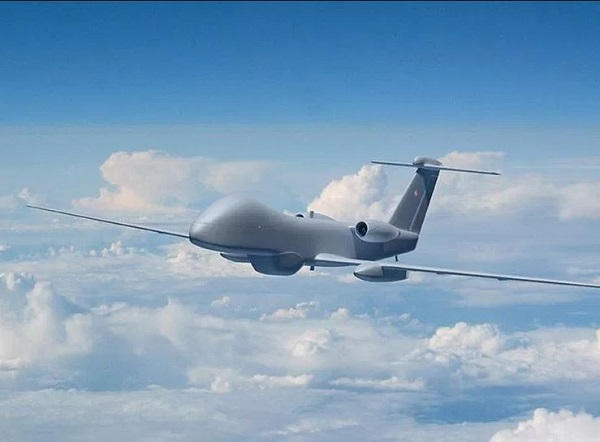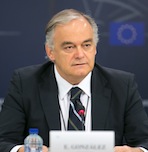
What budget for the defence industry after 2020
Europe is facing a real challenge on maintaining our borders secure.
The increase of instability and conflicts, not only in our neighbourhood but worldwide is a major threat.
Security cannot be guaranteed in a world where global and regional powers rearm, terrorist hit at the heart of cities in Europe and around the world and cyber-attacks rise exponentially.
To the South, ISIS and other terrorist organisations are proliferating in the Middle East and North Africa, bringing instability and insecurity through the area.
While to the East, Russia is investing 4,5% of its GDP in defence to implement new methods of hybrid warfare and up to 300 M€ in its public networks as weapons to spread fake news and disinformation.
Other problem that Europe is facing is the migration crisis at the Southern and Eastern borders, which raises huge challenges for the European Union security and must be addressed collectively.
Military spending in European countries is the second largest in the world, behind the United States (around 200 billion euro). But the uncomfortable truth is that European countries are unable to avoid the deterioration of their security environment because of the fragmented defence policies that create inefficiencies and obstruct their force projection.
Continental-sized powers such as the United States and China are now far better equipped than small or medium-sized states, making it clear that economies of scale are more important than ever to improve efficiency and effectiveness.
It is estimated that the lack of cooperation between Member States in the field of defence and security costs between 25.000 and 100.000 million euro per year.
In other words, in this globalized world, Member States are simply too small to act on their own. That is why a strong European defence also requires a strong European defence industry.
At the time when public support for the European Union is being questioned by some of the Member States, defence and security is an area where the individual and collective benefits of more Europe can be easily demonstrated, especially regarding the challenges that the European Union will face as a strategic actor after Brexit.
We cannot leave part of this crucial task to our historical allies anymore. We need strategic autonomy more than ever.
The commitment reached and included in the Rome Declaration of 25th March 2017 is clear: “To work towards a Union ready to take more responsibilities and to help in creating a more competitive and integrated defence industry.”
In this sense, to provide the framework and the incentives for European Union countries to develop and maintain more and better military capabilities is only in our hands.
The foundations for a European Security and Defence Union are gradually being built. But, to be successful, we will have to work hard and make considerable progress in the following issues: more cooperation; common understanding of the threats and appropriate responses; increasing of the volume and efficiency regarding to the defence spending; and finally, we need to encourage industrial competition.
The European defence policy was identified as a key political priority in President Junker’s political guidelines of July 2014.
As a result, the European Commission has proposed the European Defence Action Plan, with new financial tools for capability development and defence cooperation such as the European Defence Plan (EDF) and the Military Mobility programme.
Within the future Multiannual Financial Framework (2021-2027), the Commission has proposed 13.000 M€ (from 1,5 billion euro in 2021 to 2,8 billion euro in 2027) for the EDF.
This funding will allow the improvement for competitiveness and European ́s defence industry capacity for innovation, by supporting collaborative actions between the Members in each phase of the industrial cycle.
Adding to the European Defence Fund, the improvement of its transport strategic infrastructures to allow a more developed military mobility through the Connecting Europe Facility (CEF).
In this case, the total amount for the next Multiannual Financial Framework is 6,5 billion euro.
All of this sums up to the great commitment the Commission has towards security, since there is a proposal fund for internal security and to improve cybersecurity, reinforcements for Europol and Frontex, among others.
For now, this is the Commission’s proposal. The Parliament and the Council will have to decide over the final amounts. But there is a clear alignment among the three Institutions to pull forward this strategic dossier.
The maintaining of the defence of our values, liberties and rights is crucial at these moments.
And they must be defended by the solidarity and willingness of all Member States.
The challenges we have to confront today do not understand about national boundaries and they can only be prevented if we work together.
The military spending cannot be a taboo subject anymore. We need to collaborate and we need to invest more, better and faster.
What is at stake is not only the future of the Union, but our future as free and democratic societies.




